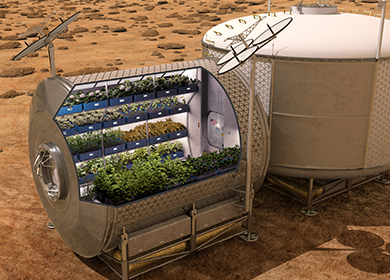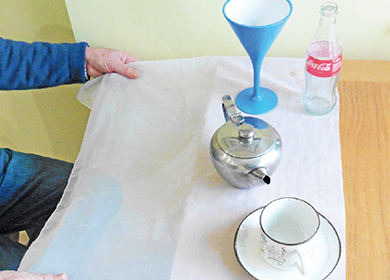Go Back
News
News
Bringing Fun to Science during the Summer
News
26 Jun, 2020
10 : 00
Today marks the beginning of our official summer break. We wish our students, teachers and parents a much-deserved, relaxed vacation after months of hard work both on and offline. Even though the break is finally upon us, we encourage students to never stop learning in their everyday lives, also during the holiday time. This is also in line with Oscar Goncalves’ view, YCIS Beijing Head of Science, who has prepared a list of resources and fun activities for our students to do during the break.
School closure and e-learning has urged all teachers to organised and explore the best on-line resources to help students continue their learning off campus. This has resulted in an excellent range of materials and resources available to teachers across the board who, for the upcoming summer camp organised by the School, have collaboratively used to put together a diversified programme which will ensure the quality of the activites.
Science can be fun and engaging but sometimes can exhaust even the most talented and prepared students. For this reason, Mr Goncalves has carefully selected the most suitable list for students, amongst the wide range of resources available online, to create an enjoyable experience for all. During these summer activities, parents will also have the opportunity to get involved by exploring areas of learning together with their children.
For students who want to continue learning science this summer and / or might not be able to attend the school-run camp, here he shares a comprehensive list of websites providing resources that range from interactive textbooks to animations, along with a variety of technologies suitable for Secondary Year Levels.
IB Diploma StudentsKognity (For Biology, Physics, Chemistry, Environmental Science)InThinking (For Environmental Science)Nearpod (For Computer Science)IGCSE StudentsKognity (For Cambridge IGCSE Co-ordinated Science and Combined Science)Savemyexams (For Cambridge IGCSE Co-ordinated Science and Combined Science)Nearpod (For ICT)Lower Secondary StudentsKerboodle (For General Science)Education Perfect (For General Science)Savemyexams (For General Science)Nearpod (For Digital Literacy and General Science)
Younger students can use the experimental aspect of science to better understand the world around them. This is why we asked My Goncalves made sure to share some fun experiments they can try at home with their family members and friends during the summer. Below is the list he gathered from www.scienceinschool.org, a website that actively promotes science teaching.
Astrofarmer: how to grow plants in spaceAges: 8–12If students can get hold of cress seeds and a few flowers (plus some other easy-to-find materials), they can try these simple experiments to explore the factors affecting plant growth.
All in the familyAges: 11–16Students can work in virtual pairs to find out about some of their own personal Medelian (dominant/recessive) genetic traits, and how these could show as physical characteristics of the children in a hypothetical family.
The way of the dragon: chemistry for the youngestAges: 8-14More chemistry activities for younger children – or older students, who can be challenged to explain scientifically the quite complex phenomena demonstrated in the activities.
Fantastic featsAges: 11–19Fun challenges and tricks to do at home, with solutions and explanations based on Newton’s laws of motion.
What are stars made of?Ages: 15–19Students can use the instructions here to build a spectrometer using a breakfast cereal box and an old CD.
When asked what makes science a great subject, Mr Goncalves said “We use Science to understand the world around us. The act of finding the answers by working in teams, from all different backgrounds and fields of expertise, even non-scientists, putting the scientific method into action is simply fascinating, sometimes even more than the answer itself. This process is often, simply, fun.”
We sincerely appreciated the resources and materials shared by Mr Goncalves and wish him a great summer break!












